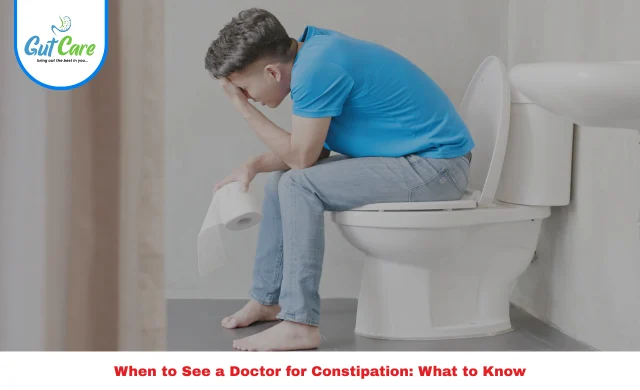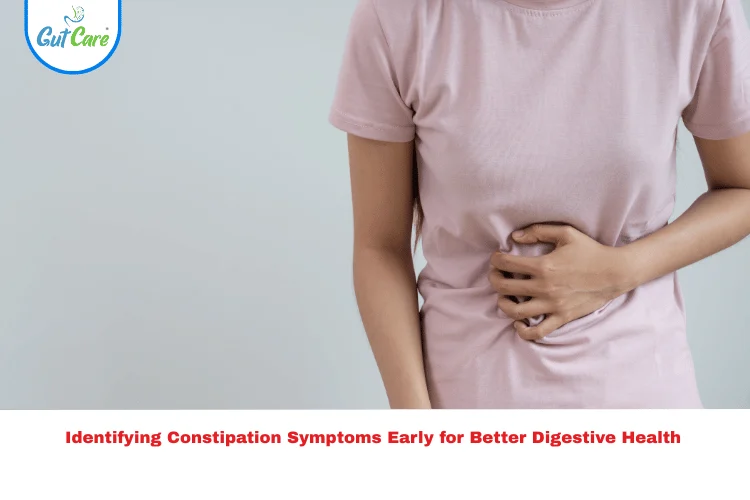Introduction: The Dangers of Neglecting Constipation May Cause Greater Harm Than You Think
It’s hard to discuss it, but honestly, constipation is quite a serious problem. If you ignore it, the resulting complications can cause you harm. A large number of individuals perceive it as something that is due to their diet or caused by stress, thinking it will resolve itself. Nevertheless, being aware of when to see a doctor for constipation might be necessary for ensuring that you stay healthy. Constipation, mainly when it is of a chronic nature, will give you warning signs of deeper problems that urgently need medical treatment.
This text takes a detailed look at the main symptoms and such signals that let you know it’s high time to see a healthcare expert, along with the reasons and the necessity for prompt therapy.
What Does Constipation Look Like?
Typically, constipation means a fewer than three bowel movements per week, with additional symptoms affecting the patients such as:
- Hard or lumpy stools
- Straining during bowel movements
- A sensation of incomplete evacuation
- Bloating or discomfort
Most of the time, people experience short-term constipation due to their dietary habits, dehydration, or stress. Nevertheless, if the condition is lasting a long time, or it is becoming more severe (it eventually leads to pain), the person should seek medical attention, since it could be the symptom of some deeper issue that needs to be treated.
Constipation Lasting More Than Three Weeks
If you have been suffering from constipation that persists for over three weeks in spite of using home remedies, this is the clue that you should see a doctor. Chronic constipation, which is also called long-term constipation, might result in a compromised quality of life and might be associated with more serious conditions like hypothyroidism, diabetes, or irritable bowel syndrome (IBS). Your doctor may recommend you to undergo some tests which include blood work, colonoscopy, and imaging studies to establish the underlying cause.
Severe or Persistent Abdominal Pain
Although mild abdominal discomfort can be present with constipation, severe or never-ending pain is not normal in this case. A more serious condition such as a bowel obstruction, fecal impaction, or even appendicitis might be the cause. The pain can be very sharp, cramping, or you might have distension and tenderness in the abdomen. Therefore, if you recognize these symptoms, the only way out for you is the medical evaluation.
Rectal Bleeding or Bloody Stool
Seeing bright red blood on toilet paper or in your stool can be shocking. Though it is possible that you are experiencing a symptom of an innocuous colon condition, bleeding which is abundant or that recurs shall never pass unnoticed as it may well be a sign of colorectal polyps, diverticulosis, or even colorectal cancer. With the help of a doctor’s consultation, the exact cause of the problem can be easily established, and then follow-up screenings or treatment will be advised.
Nausea or Vomiting
Not many, though some people may still exhibit signs that they are suffering from something more than regular constipation. In such cases, it could be a bowel obstruction or motility disorder of severe intensity. This happens when fecal matter present in the bowel is not moved, and is therefore, creating a blockage. In this case, the only solution would be visiting a doctor who will remove the initialized blockage and prevent further complications from arising by applying the right medication.
Unintentional Weight Loss
Losing weight without even trying is often a warning sign. When it goes beside constipation, that could be an indication of problems in the stomach or metabolic diseases. Furthermore, it might be as a result of colon cancer, celiac disease or some other systems that fail to absorb nutrients. If you are feeling a great surge of hunger, weary, and slimming coupled with changes in bowel movement, then it is time to seek advice from a health practitioner.
Overuse of Laxatives
People with constipation usually take laxatives, but excessive consumption causes dependence. The body gets used to these drugs over time and, as a result, the intestines may become weak to the point that your normal body function is impossible. If you have resorted to laxatives for, perhaps, more than two times in one week, then it is high time you and your physician engaged in a discussion concerning other therapies to be used. In that case, your doctor will suggest the use of stool softeners, foods that change the diet or even prescription drugs that have fewer post effects in the long run.
Feeling of Incomplete Evacuation
It’s called tenesmus if a person feels like he/she needs another bowel movement after a recent one. Despite the fact that this experience can be natural and happen to everyone sometimes, if it becomes a frequent or persistent cause, it may indicate an unsettled bowel, rectal prolapse, or inflammation, etc. If this symptom is something you haven’t seen or have seen but worsening, then it is an indication you must go to a doctor to be checked.
When Medical Attention Is Critical
It is important to recognize that there are situations in which instant medical help is a necessity only when such are the instances:
- No movement of the bowel for more than a week
- Vomiting fecal material
- Severe pain that is getting worse
- Your symptoms are not relieved by home treatment or the new lifestyle changes
Not recognizing these symptoms can result in complications like faecal impaction or perforation for which you might have to be rushed to the emergency room.
FAQs
1. When should constipation be considered serious?
Constipation can be considered as a serious condition if it persists three weeks long, causes pain or bleeding, or is accompanied by other symptoms such as nausea or weight loss.
2. Can constipation indicate a more serious condition?
Yes. Continual constipation may be an indicator of colorectal cancer, thyroid malfunction, or nervous disorders.
3. What medical tests can diagnose the cause of constipation?
A proper diagnosis can be discovered by your doctor after the blood tests, colonoscopy, abdominal imaging, or motility studies.
4. Should I be worried if my child has constipation?
It is advisable to take a child to see a pediatrician if he/she has that problem going on for a week or shows any signs of pain or bloating.
5. Is hospitalisation ever needed for constipation?
It is a rare case that hospitalization and emergency care is the only solution, e.g., a doctor might suspect a blocked bowel and that is the only time that such a step becomes necessary.
Conclusion
Recognizing when to see a doctor for constipation can have a major impact on the prevention of complications and the maintenance of one’s overall health. While sometimes, constipation may just be one of those things that can be treated at home, its continued occurrence or severity of symptoms are signs of the need for a medical consultation. Do not disregard the symptoms of pain, bleeding, or a change of the bowel habit of your body—your body is conveying a very crucial message to you.
Contact GutCare Clinics and Visit Us for expert care.




